7 Side Effects to Expect When You First Go Gluten Free
When I think back to when I first went gluten free five years ago after receiving my celiac disease diagnosis, I remember encountering several surprises. The most unexpected ones, though, were the largely unmentioned physical, emotional and practical side effects to eating gluten free...and after years of regularly talking with new celiacs, I know I’m not the only one who initially experienced these less-than-ideal symptoms.
As with any diet, different people may have different responses. Although it’s obviously important to be aware of losing or gaining an unhealthy amount of weight after going gluten free, I’d encourage you to focus on how you feel instead. This advice is easier said than done, and I still have my share of body image challenges, but expecting your appearance to possibly change after going gluten free will hopefully help.
Slowly but surely, though, eating gluten free will become your new normal. You'll find gluten free recipes you love and gluten free products that taste just as good (or close to) as your old dietary staples. Your taste buds will adjust and you'll soon know the "celiac spiel" you give to restaurant waiters by heart. You might even discover hidden blessings from your celiac disease diagnosis, like I did.
It would be a lie to say that your life will automatically improve as soon as you ditch gluten. Not everyone with celiac disease heals at the same rate, and many people (including me!) experience some not-so-ideal symptoms like the ones I've mentioned above. Hopefully, though, this post reassures you that you aren't alone if you're struggling after first going gluten free...and that these challenges, too, shall pass.
Did you experience any of these symptoms? What was your experience after initially going gluten free? I'd love to hear your stories in the comments!
So what can really happen when you first go gluten free that your doctor might not warn you about? In the spirit of Celiac Awareness Month, I thought now was the perfect time to shed some light on this important question. Keep reading to learn seven side effects you should expect after starting a gluten free diet!
(As always, I’m not a medical professional and always suggest talking to your doctor - and even bringing up some of these often overlooked points - before, during and after going gluten free. This post is based only on my personal experience, the experiences of others I’ve talked to and research/articles found online).
1. You may feel worse before you feel better.
I’d be the first to admit that I am not an “average” celiac disease patient in terms of my healing process. Going gluten free wasn’t enough for me to thrive with celiac disease, and I ended up having to be hospitalized and fed through a feeding tube before I started recovering from the damage gluten had caused to my intestines. Based on the popularity of my posts on those topics, it also seems clear that I am not the only one who needed more than a gluten free diet to feel healthy with celiac disease.However, even people who feel better more quickly on a gluten free diet (whether they have celiac disease, gluten intolerance or some other medical reason to benefit from eating GF) often initially report some not-so-great physical symptoms.
Because a gluten free diet often includes fewer whole grains and less common ingredients like Xantham gum, people can become constipated from a lack of fiber. On the other hand, if you go from eating a highly processed diet to one with lots of fruits and vegetables, you might also end up bloated from eating more fiber than you used to.
I, along with my mom and other gluten free eaters I’ve talked to, also experienced issues like headaches, fatigue and nausea when first changing our diets. If a gluten free diet is the best fit for you, though, these symptoms should slowly subside as your system adjusts to your new diet. If you have celiac disease and continue to feel poorly while following a strict gluten free diet, I’d urge you to talk to your doctor about other possible steps to take, such as keeping a food journal, undergoing further testing, etc.
2. Your mental and emotional health might be affected.
Even if you think you know how hard going gluten free can be, you might be surprised at how intensely you mourn the wheat-filled foods you once loved. Going gluten free, especially when you also need to avoid cross contamination, is much more complicated than just giving up bread. Wheat can hide in everything from soy sauce to sauces to seasonings, and your first grocery store trips might be so frustrating, you feel close to tears.
 |
| (Source) |
I also know from personal experience that gluten cravings are very real, and sometimes just as brutal. I vividly remember crying standing in front of my fridge since I was craving a tortilla and we only had my old flour tortillas in our fridge...and this was after I’d been gluten free for several months.
My biggest pieces of advice for coping with the emotional roller coaster of going gluten free is to embrace however you’re feeling and have a solid support system nearby. You are allowed to grieve for the foods you’re losing, even if “it’s only pizza.” After all, that Papa John’s pizza also represents the ability to easily eat out and is likely tied to several heartwarming family memories.
Establishing a set support system - whether it’s your family or an online Facebook group of other gluten free eaters - can also make a big difference in how easily you adjust to eating gluten free. As I explain here, I always recommend educating your friends and family about your diagnosis and new diet so that they can help you stay accountable and won’t (knowingly or accidentally) tempt you with unsafe foods. And, as always, you can always reach out to bloggers like me if you need a digital shoulder to lean on!
3. Gluten free food substitutes won't taste as good now as they will later.
If you’re reading this blog post while going through some of these not-so-fun initial weeks of eating gluten free, know this: gluten free food will start tasting better. I like to describe the change my taste buds have undergone with the old quote, “Out of sight, out of mind.” After I’d been gluten free for a year or so, I’d honestly forgotten how many gluten-filled foods tasted. As a result, when I re-tried some of the gluten free brands I’d tasted shortly after my celiac disease diagnosis, I raved about how good they tasted, even though I’d thought they were just "average" months earlier. My mom, who discovered she is gluten intolerant after going gluten free with me, experienced the same thing.
Combined with the fact that more delicious gluten free products are being released each year (check out a list of my favorite gluten free companies here), and this taste bud shift should give you hope that enjoying a yummy gluten free diet is 100% possible. It just may take some time - and some cooking practice and product taste testing - for you to find the best-tasting gluten free foods for you.
4. You might start gaining weight...or losing it.
As I’ve mentioned several times before, the gluten free diet is not a weight loss diet. Foods that are labeled "gluten free" are not necessarily "healthier." All "gluten free" means is that there is no wheat included in the product; there are no "healthy" guarantees about calories, fat or sugar levels.
However, going gluten free can change your weight. If you don’t have a medical reason to go gluten free, you might find yourself slimming down because you’re eating naturally gluten free foods (like fruits and vegetable) instead of processed foods. Meanwhile, if you have celiac disease, you might gain or lose weight. Celiacs who were initially overweight could be able to lose weight for the first time after going gluten free. Meanwhile celiacs who were underweight might gain weight now that they’re actually absorbing the nutrients from their food.
As with any diet, different people may have different responses. Although it’s obviously important to be aware of losing or gaining an unhealthy amount of weight after going gluten free, I’d encourage you to focus on how you feel instead. This advice is easier said than done, and I still have my share of body image challenges, but expecting your appearance to possibly change after going gluten free will hopefully help.
5. You may notice different reactions to other allergens as well.
The most surprising side effect of going gluten free for me was definitely how many other foods I started to notice also bothered my stomach. My doctor had warned me that some celiacs can’t tolerate dairy after diagnosis because of the damage to their intestinal villi, and, sure enough, I was soon scouting out the best dairy free ice cream brands.
A year after my celiac disease diagnosis, though, I was still dealing with bloating, gas, constipation and other digestive symptoms. That’s when I started experimenting with a low fodmap diet, and I eventually realized that garlic, onion, mango and a few other foods are big triggers for me. After keeping a food journal, I also began to realize that red meat didn’t digest very well and that large amounts of corn often increases my fibromyalgia pain.
I don’t believe everyone who goes gluten free needs to cut out other foods to feel their best, just like I don’t think everyone needs to - or should - go gluten free. I also don’t know whether I starting noticing these additional sensitivities because my gut had been damaged from celiac disease and wasn’t working as well or because I was simply more attuned to how my stomach was feeling and what a “good” day actually felt like.
However, as with all the other symptoms on this list, I’d encourage you to discuss any remaining stomach problems after going gluten free with your doctor.
6. Your grocery bills might go up.
It’s true that eating gluten free can be expensive, no matter how long it’s been since you started a gluten free diet. However, you should especially expect your grocery bills to go up soon after you go gluten free. After all, that’s the period when you’re going to have to invest in your new pantry staples - ranging from all purpose gluten free flour to un-cross-contaminated grains, nuts and seeds - and when you won’t know as much about how to save money on a gluten free diet.
To make the adjustment to a gluten free diet as painless (for you and your wallet) as possible, I’d suggest first sticking to naturally gluten free foods, like fruits, vegetables and meats. Not only will this save you money, but it will also make grocery shopping quicker since you won’t have to spend time reading lots of labels. Once you are ready to dive into gluten free products, research the best brands beforehand and look up tips for saving money on gluten free groceries, like the ones I've shared in this post. Going gluten free without going broke can feel challenging at first, but I can now eat gluten free for less than $35 a week, so know that it is totally possible.
7. You might feel like you’ll “never be able to like being gluten free.” But trust me. You’ll get there!
Especially if you don't start feeling better right away, you might find yourself doubting that you'll ever be happy - or well fed - while following a gluten free diet. When you first go gluten free, you'll probably struggle with remembering that you can't eat off a loved one's plate (if they're eating gluten, anyway) or struggle with cravings for your old favorite foods. Just as you may experience grief over the loss of your past lifestyle and foods, you might also feel angry at the chronic illness taking over your life.Slowly but surely, though, eating gluten free will become your new normal. You'll find gluten free recipes you love and gluten free products that taste just as good (or close to) as your old dietary staples. Your taste buds will adjust and you'll soon know the "celiac spiel" you give to restaurant waiters by heart. You might even discover hidden blessings from your celiac disease diagnosis, like I did.
It would be a lie to say that your life will automatically improve as soon as you ditch gluten. Not everyone with celiac disease heals at the same rate, and many people (including me!) experience some not-so-ideal symptoms like the ones I've mentioned above. Hopefully, though, this post reassures you that you aren't alone if you're struggling after first going gluten free...and that these challenges, too, shall pass.
Like this post? Tweet me some love by clicking here: "I'm getting real this #CeliacAwarenessMonth and sharing 7 initial "side effects" of going #glutenfree that I experienced...& you might too! Plus, I share my tips for adjusting to a #glutenfreediet & thriving with #celiac. All that here --> http://bit.ly/2FRHtid"
And once you do make it six months, one year, two years and beyond of eating gluten free. Well, I can attest to the fact that your gluten free celebratory cake will taste pretty dang sweet!Did you experience any of these symptoms? What was your experience after initially going gluten free? I'd love to hear your stories in the comments!
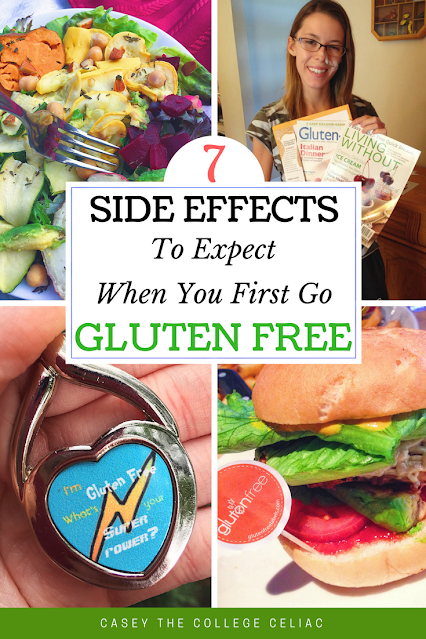
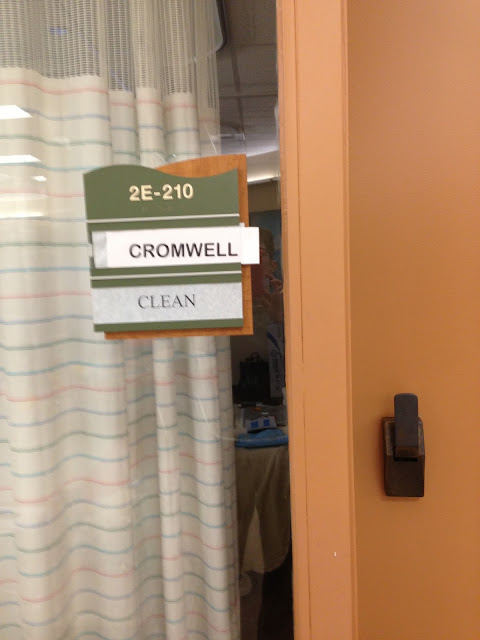

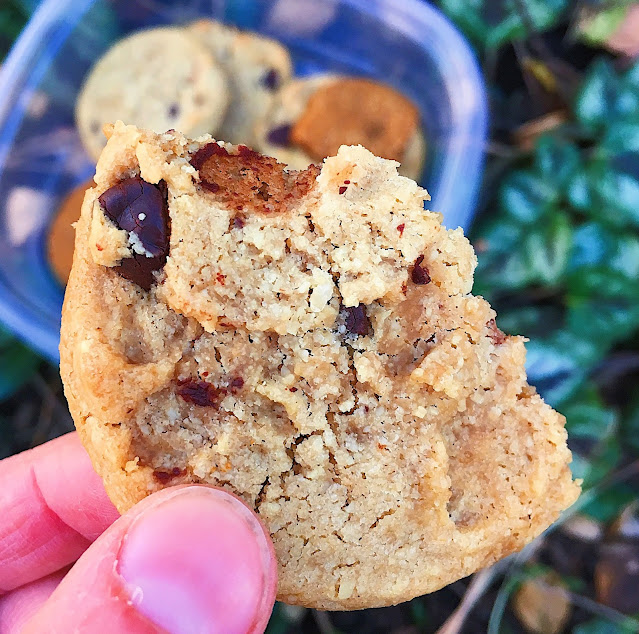

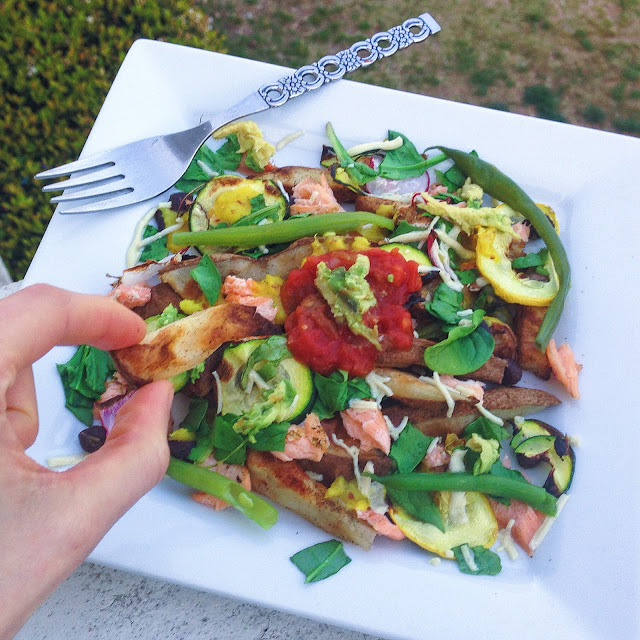
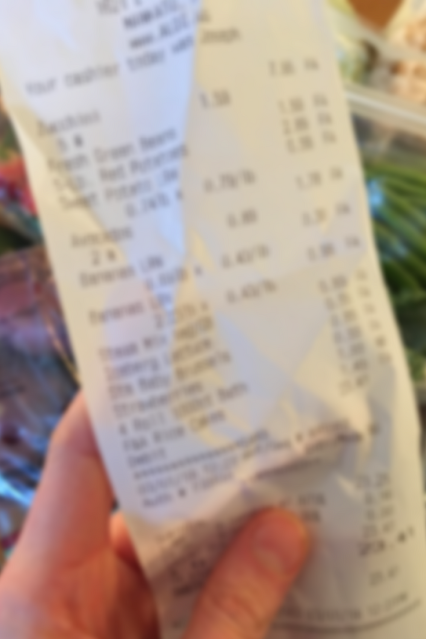
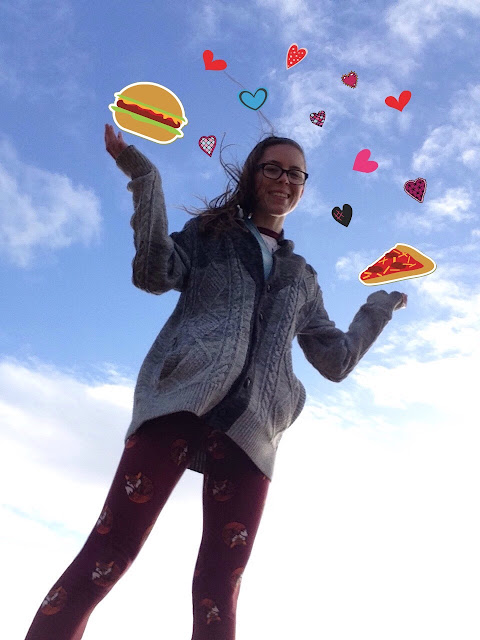
No comments for "7 Side Effects to Expect When You First Go Gluten Free"
Post a Comment